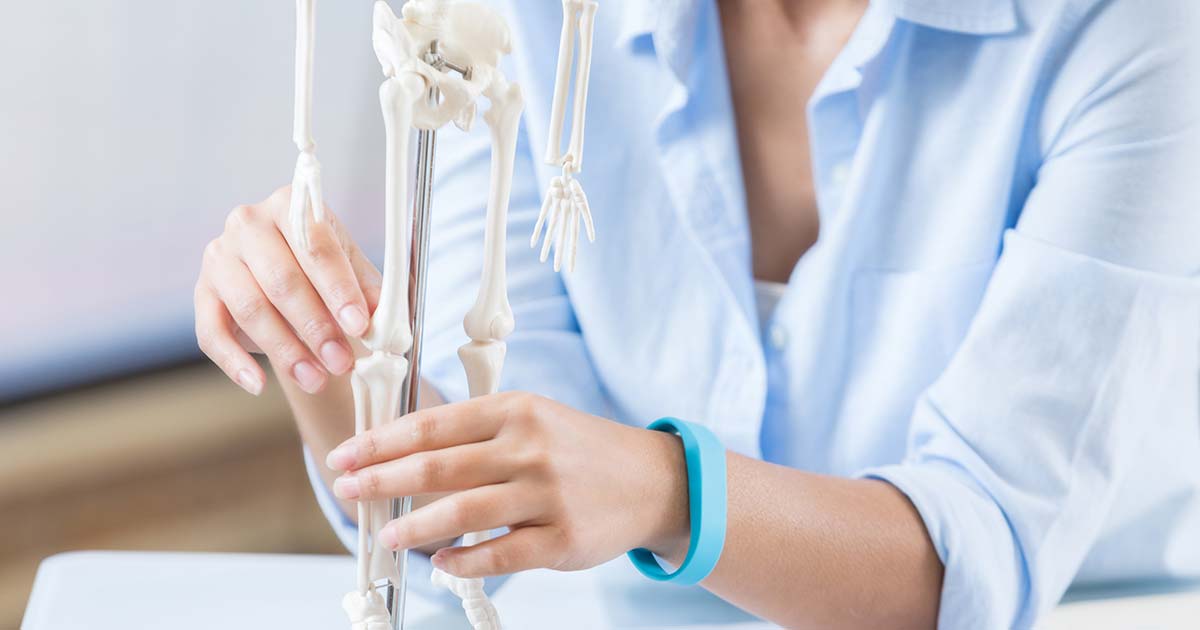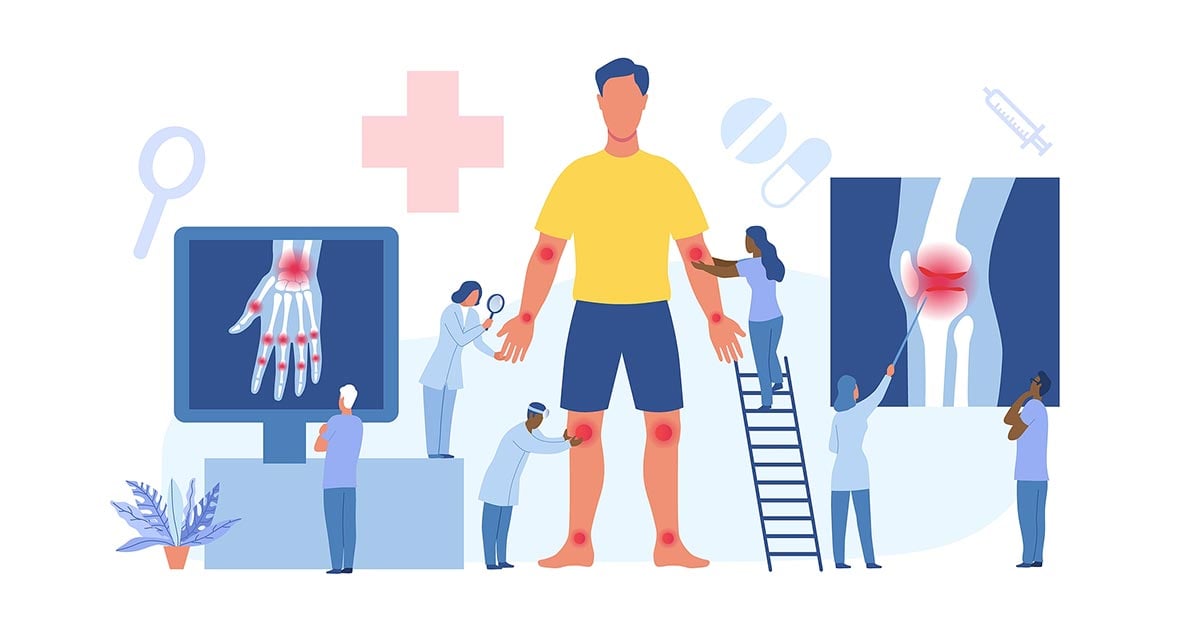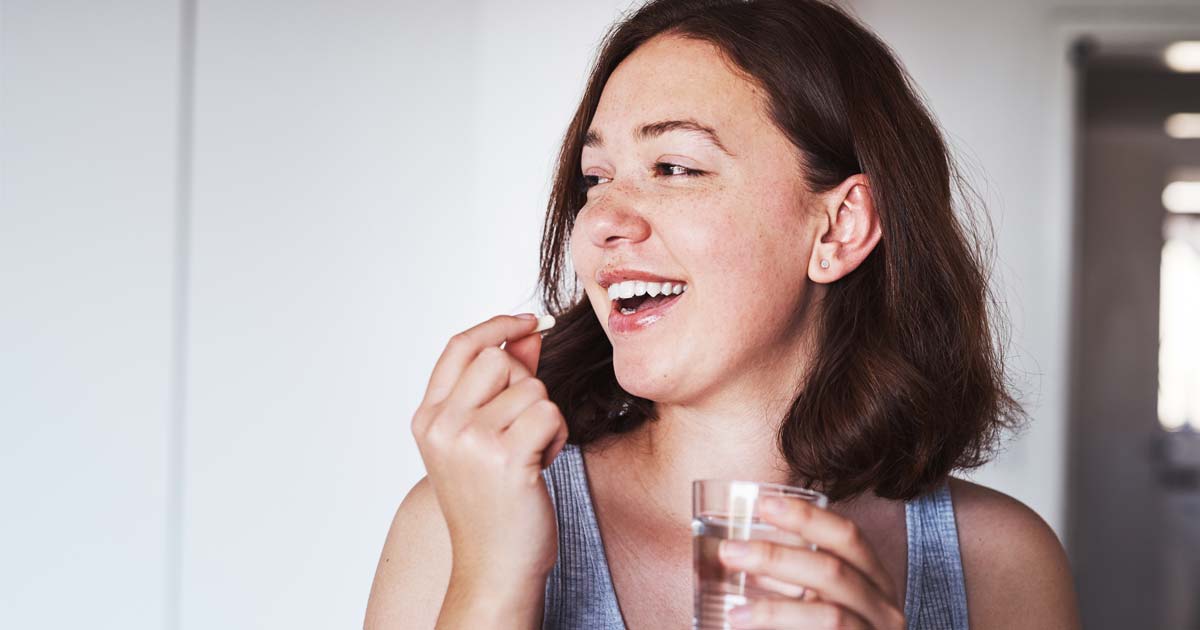
Advice to improve your movement, fitness, and overall health from the #1 in orthopedics in the U.S.
How Much Do You Know About Bone Health?
Take our quiz to test your knowledge of bone health.
Advice to improve your movement, fitness, and overall health from the #1 in orthopedics in the U.S.
Maintaining and building your bone strength is an important part of healthy aging. Strong bones can help you avoid pain and injury; they can even help to prevent loss of height as you get older, says Emily Stein, MD, MS, Director of Research on the Metabolic Bone Service at HSS.

Think you know the basics of bone health? Take our quiz to find out.
Correct! Bones seem solid but they’re actually hubs of activity, continuously being broken down and renewed. During the breakdown phase, cells called osteoclasts dissolve old bone. In the renewal phase, cells called osteoblasts line the cavity with collagen and minerals, which harden into bone tissue. New bone outpaces the loss up until about age 30. After that, your body begins to lose bone faster than it forms it.
Nice try! The correct answer is False. Bones seem solid but they’re actually hubs of activity, continuously being broken down and renewed. During the breakdown phase, cells called osteoclasts dissolve old bone. In the renewal phase, cells called osteoblasts line the cavity with collagen and minerals, which harden into bone tissue. New bone outpaces the loss up until about age 30. After that, your body begins to lose bone faster than it forms it.
Correct! The body needs sufficient amounts of vitamin D, which stimulates your intestines, to absorb calcium. Foods such as fatty fish and milk can contribute to your daily requirements; your body can also absorb vitamin D when ultraviolet rays from the sun strike the skin. This means that many Americans, especially those who spend their days indoors, are deficient. The general recommended intake for most people is 600 international units per day. For those over 70, that number is 800. However, every person has a slightly different requirement and the best way to know if you are getting enough vitamin D is to have your levels checked. Speak to your doctor about getting a blood test that checks your 25-hydroxyvitamin D levels. If you’re unable to get a test, taking the recommended amount is a good place to start, says Dr. Stein. Read more about vitamin D and how to know if you need more of it.
Nice try! The correct answer is D. The body needs sufficient amounts of vitamin D, which stimulates your intestines, to absorb calcium. Foods such as fatty fish and milk can contribute to your daily requirements; your body can also absorb vitamin D when ultraviolet rays from the sun strike the skin. This means that many Americans, especially those who spend their days indoors, are deficient. The general recommended intake for most people is 600 international units per day. For those over 70, that number is 800. However, every person has a slightly different requirement and the best way to know if you are getting enough vitamin D is to have your levels checked. Speak to your doctor about getting a blood test that checks your 25-hydroxyvitamin D levels. If you’re unable to get a test, taking the recommended amount is a good place to start, says Dr. Stein. Read more about vitamin D and how to know if you need more of it.
Correct! Any activity you do on your feet that forces your bones and muscles to work against gravity is weight bearing, which is good for strengthening bones. “Walking is a great weight-bearing activity,” says Dr. Stein. Others include stairclimbing, jogging, hiking, tennis and even gardening. Full-body resistance exercises, such as lifting weights or working with exercise bands, are important as well to strengthen muscles and reduce the risks of fractures. Dr. Stein advises a combination of weight-bearing, resistance exercises and balance exercises (like Pilates and yoga). She recommends at least 30 minutes of exercise daily if possible.
While non-weight-bearing exercises like swimming are excellent for heart health, they have little effect on bone health. If you have health conditions such as high blood pressure, cardiovascular disease or osteoporosis, check with your doctor before starting a new exercise program.
Nice try! The correct answer is A. Any activity you do on your feet that forces your bones and muscles to work against gravity is weight bearing, which is good for strengthening bones. “Walking is a great weight-bearing activity,” says Dr. Stein. Others include stairclimbing, jogging, hiking, tennis and even gardening. Full-body resistance exercises, such as lifting weights or working with exercise bands, are important as well to strengthen muscles and reduce the risks of fractures. Dr. Stein advises a combination of weight-bearing, resistance exercises and balance exercises (like Pilates and yoga). She recommends at least 30 minutes of exercise daily if possible.
While non-weight-bearing exercises like swimming are excellent for heart health, they have little effect on bone health. If you have health conditions such as high blood pressure, cardiovascular disease or osteoporosis, check with your doctor before starting a new exercise program.
Correct! Smoking and having more than two alcoholic beverages a day can contribute to weakening bones, as can certain medications such as corticosteroids, thyroid medications and some cancer therapies. If you smoke, stop. (Go to smokefree.gov to connect with someone who can help you quit free of charge.) Limit your evening nightcap to one drink. And if you’ve ever been on a medication that could have affected your bone health, see a bone specialist to assess the current state of your bones. Though if you’re currently on one of those meds, do not stop taking it. “The benefits of these medications often outweigh the harmful effects to the skeleton,” stresses Dr. Stein. Speak to your treating doctor to make sure you’re on the lowest dose for the shortest amount of time and see a bone specialist.
Nice try! The correct answer is D. Smoking and having more than two alcoholic beverages a day can contribute to weakening bones, as can certain medications such as corticosteroids, thyroid medications and some cancer therapies. If you smoke, stop. (Go to smokefree.gov to connect with someone who can help you quit free of charge.) Limit your evening nightcap to one drink. And if you’ve ever been on a medication that could have affected your bone health, see a bone specialist to assess the current state of your bones. Though if you’re currently on one of those meds, do not stop taking it. “The benefits of these medications often outweigh the harmful effects to the skeleton,” stresses Dr. Stein. Speak to your treating doctor to make sure you’re on the lowest dose for the shortest amount of time and see a bone specialist.
Correct! The most common way doctors determine bone density is through DXA (dual-energy X-ray absorptiometry). This test measures the concentration of calcium and other minerals in a given segment of bone (usually the spine or hip). This painless, non-invasive test usually lasts less than 15 minutes. Dr. Stein recommends a bone density test if you:
- Are a woman of menopausal age
- Are a man over 70
- Have broken a bone after age 50
- Have taken glucocorticoids/cortisone for three months or more
Nice try! The correct answer is C. The most common way doctors determine bone density is through DXA (dual-energy X-ray absorptiometry). This test measures the concentration of calcium and other minerals in a given segment of bone (usually the spine or hip). This painless, non-invasive test usually lasts less than 15 minutes. Dr. Stein recommends a bone density test if you:
- Are a woman of menopausal age
- Are a man over 70
- Have broken a bone after age 50
- Have taken glucocorticoids/cortisone for three months or more
Correct! The body is constantly regulating the amount of calcium in the blood. If you run short, the body steals it from the biggest storage house for the mineral: your skeleton. That’s why calcium is crucial to maintain strong bones. The recommended intake for women under age 50 and men is 1,000 mg of calcium a day, which translates to about one 8-oz plain low-fat yogurt, one serving of cheese, and two 8-oz glasses of low-fat milk. For women over age 50, the recommended intake is 1200 mg, which means they need to add about a cup and a half of low-fat cottage cheese.
It’s best to get as much calcium as you can from your diet since you absorb it more easily and gradually from food, says Dr. Stein. However, since most women don’t get enough calcium through diet alone, they may want to consider supplementing. "Take a good look at your diet, figure out how much calcium you’re getting in a typical day, then supplement with the amount needed to make up the shortfall," Dr. Stein advises. A registered dietitian can also help you with this.
Nice try! The correct answer is A. The body is constantly regulating the amount of calcium in the blood. If you run short, the body steals it from the biggest storage house for the mineral: your skeleton. That’s why calcium is crucial to maintain strong bones. The recommended intake for women under age 50 and men is 1,000 mg of calcium a day, which translates to about one 8-oz plain low-fat yogurt, one serving of cheese, and two 8-oz glasses of low-fat milk. For women over age 50, the recommended intake is 1200 mg, which means they need to add about a cup and a half of low-fat cottage cheese.
It’s best to get as much calcium as you can from your diet since you absorb it more easily and gradually from food, says Dr. Stein. However, since most women don’t get enough calcium through diet alone, they may want to consider supplementing. "Take a good look at your diet, figure out how much calcium you’re getting in a typical day, then supplement with the amount needed to make up the shortfall," Dr. Stein advises. A registered dietitian can also help you with this.
Published 2/22/2021


